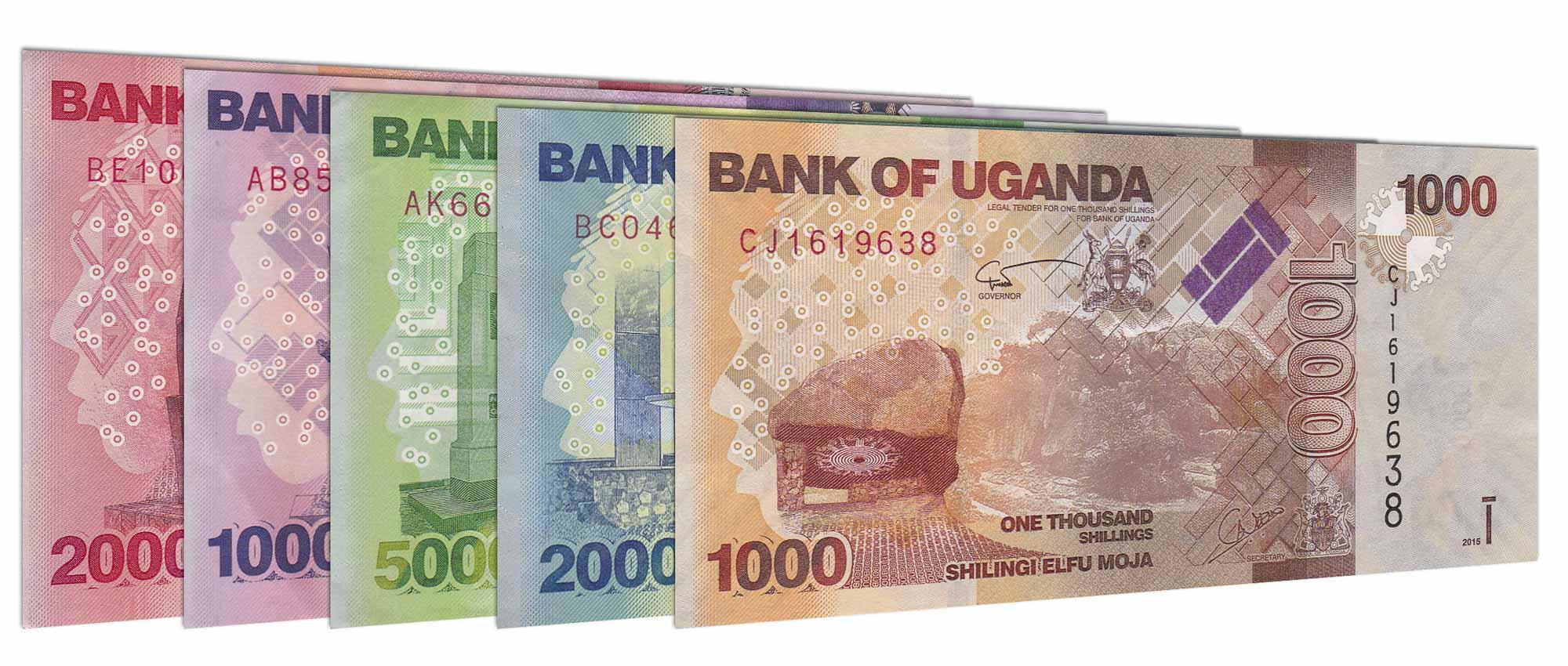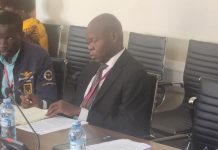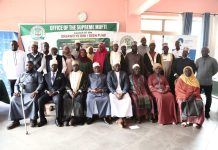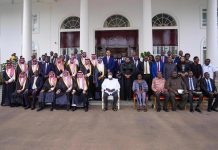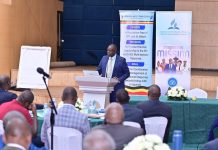Africa-Press – Uganda. The governors of central banks across East Africa have renewed their vows to speed up the protocol of achieving the single regional currency before the 2051 deadline.
On Friday, while closing a one-week East African Community’s annual Monetary Affairs Committee (MAC) conference in Juba, South Sudan, the governors resolved to improve the continued high central bank policy rates, continued exchange rate pressures partly arising from a stronger US dollar, among other variables that are delaying the roll out of the single currency.
The conference chaired by the South Sudan central bank governor, Dr James Alic Garang, that brought together approximately 100 delegates from eight different countries across the region was attended by Dr Adam Mugume, a representative of the deputy governor, Bank of Uganda, and Mr Emmanuel Tutuba, the governor of Bank of Tanzania.
Others included Dr Kamau Thugge, the governor of the Central Bank of Kenya; Mr Eduoardo Bigendako, the governor of the Central Bank of Burundi.
Dr Garang said before the dust raised by the Covid-19 pandemic could settle, negative human activities, geopolitics and natural calamities moved to compound the problem.
“The MAC meeting is an event, where we gather to take stock of governance decisions and environment progress that has been made for the last one year while discussing monetary affairs and other pertinent issues that matter to our community,” he stated.
“In this context, MAC meetings accord us the opportunity to examine progress and envisage the efforts geared towards achieving the objectives of the EAMU or the attainment of the single currency since several challenges top our regional and global agenda today,” he added.
According to South Sudan central bank governor, the challenges include rising poverty levels, geopolitics, among others, which need to be urgently addressed.
Mr Tutuba said achieving regional integration and single currency will require critical design of policies and strategies to cope with the challenges brought on by the global shocks and climate change.
“Global shocks have to a significant level adversely impacted on the macro economic convergence milestones that have been achieved by the region in the recent past ,” he said, adding that “structural challenges emanating from the devastating impact of climate change have also gained prominence, including diseases, and other bad calamities which have led to loss of livelihoods of our people.”
The net result of all this per Governor Tutuba is a “deterioration of fiscal space, elevated inequity, vulnerabilities, increased inflation levels and pressures on our local currencies.”
Not appreciated
Dr Mugume, who held the fort for Dr Michael Atingi-Ego in Juba, said while the East African Community (EAC) is performing averagely compared to the rest of the sub-Saharan African nations, the present monetary policies are not appreciated and had suffocated efforts towards the single currency.
“One aspect which is a challenge for the entire region is around the monetary policies,” he started, adding, “Every time we go after monetary policy meetings, we go down to interact with the locals, they always ask us: ‘do you think we eat inflation? Do you think we eat low inflation if it is low at the central bank?’ And these are our people at the grassroots.”
He explained that the roadmap to achieve the single currency had been hampered by the unfavourable monetary policies that caused huge disparities in Uganda’s economy.
“We found out that at the macro-level, once we increase the monetary policy rate, it can have an impact of making the poor poorer and the rich richer, and thus not contributing in a sense,” Dr Mugume revealed, adding, “We also discovered that once we tighten the monetary policy, high income is not affected, because their interest rates do not move with the policy rate.”
Taking stock
Last March, the committee held its 26th conference in Bujumbura, Burundi, against a backdrop of continued inflationary pressures, tightening financial conditions, vulnerabilities arising from the war in Ukraine, unfavourable weather conditions, and other emerging risks. The Committee noted that economic performance in the EAC region in 2022 remained strong, recording GDP growth of 4.5 percent. The Committee further noted that growth in the region is expected to improve, supported by a recovery in agriculture, continued strong performance in the services sector, and prudent monetary and fiscal policies.
The meeting reviewed the status of implementation of previously agreed actions towards the establishment of the East Africa Monetary Union (EAMU), with a focus on the decisions of the 25th Ordinary MAC meeting held virtually in March 2022.
In their Friday communique, the governors pledged to continue working with the relevant authorities to advance the regional integration agenda.
“Notwithstanding the above progress, the committee reaffirmed its commitment to implementing the remaining activities set out in the revised East African Monetary Union roadmap within the set timelines, in order to achieve the monetary union by 2031,” the communique reads in part.
The governors resolved to review the performance of the convergence criteria, the communique further disclosed, taking into account the revised timelines for the achievement of the East African Monetary Union.
Strong headwinds
The region still faces unfavourable global financial conditions, negative spill-overs from geopolitical conflicts and the impact of climate change that continue to weigh on the economic performance of East African countries.
Earlier on, delegates discussed that the region is confronted with high fuel and food import prices, costly market access and pressures on the exchange rate and foreign reserves. According to the committee, inflation in the region increased in 2022 and 2023, but has since eased following the implementation of appropriate monetary policies and the easing of global commodity prices.
The inflation increase was driven by high global commodity prices (mainly food and energy prices), owing to global shocks, as well as adverse weather conditions that affected agriculture production in some countries.
The governors also reviewed the status of implementation of previously agreed actions towards the establishment of the EAMU, with a focus on the decisions of the 26th Ordinary MAC meeting held in Bujumbura in March 2022.
Besides noting that partner states’ central banks have made significant strides towards implementing price-based monetary policy frameworks, harmonising regional macroeconomic and financial statistics to support policy formulation, implementing EAC Capital Markets Infrastructure, the governors also discussed the progress made towards the establishment of the East African Monetary Union supporting institutions.
EAMU roadmap
During the Friday closing ceremony, the governors welcomed the Central Bank of Somalia, as the newest member of the EAC Monetary Affairs Committee. They pledged to provide all necessary support to the Central Bank of Somalia as the country integrates into the EAC.
In a statement, MAC’s rapporteur Raphael Otieno acknowledged the numerous challenges the region faces in achieving its single currency dream and implored the delegates to toughen their efforts in supporting the roadmap
“Our region continues to face regional challenges, the establishment of the East African Monetary Union (EAMU) institutions, especially the monetary institutions, is lagging behind the revised EAMU roadmap,” Mr Otieno noted.
“We look forward to your continued support for this important institution. This meeting of the monetary affairs committee, therefore, provides an opportunity for the EAC Central Banks to strengthen the coordination of monetary policies as we continue on our journey towards the adoption of a single currency,” he added.
Mr Otieno detailed the hurdles facing the roadmap, which include the unfavourable global financial conditions, the negative spill-overs from the war in Ukraine and Sudan, and the tension in the Middle East that continues to weigh on the economic performance of the EAC partner countries.
“Food prices, high food import rates, high global interest rates, and climate change have also affected the fiscal and external conditions of most of the countries in East Africa,” Mr Otieno noted.
Building resilience
On his part, Governor Thugge from Kenya believes that by building resilience to multiple shocks arising from global challenges and geopolitical developments that are impeding the achievement of the single currency should be treated with urgency.
“In the last few years, the region has faced several shocks that have affected its performances and policy choices. Therefore, as EAC, the community should continue to build resilience to multiple shocks arising from global challenges and geopolitical developments. The last MAC meeting in 2025 took note of all the developments that occurred since 2019 which threaten to derail the community from this steady growth path,” he said.
To date, according to the committee, partner states’ central banks have made significant strides towards the establishment of key institutions of the EAMU, particularly the East African Monetary Institute (EAMI), harmonisation of monetary and exchange rate policies, harmonisation of regulatory frameworks, among others.
About EAMU
In November 2015, EAC member states signed the protocol on the establishment of the East African Community Monetary Union (EAMU) as the third stage of integration in the region, aimed at launching a single currency by 2024.
The objective of the EAMU is to promote and maintain monetary and financial stability aimed at facilitating economic integration to attain sustainable growth and development in the community.
It also targets integrating their financial systems and adopting common principles and rules for the regulation and supervision of the financial system.
The committee noted that despite the revised timelines set out in the EAMU roadmap, the new date of achieving the monetary union is by 2031.
For More News And Analysis About Uganda Follow Africa-Press

